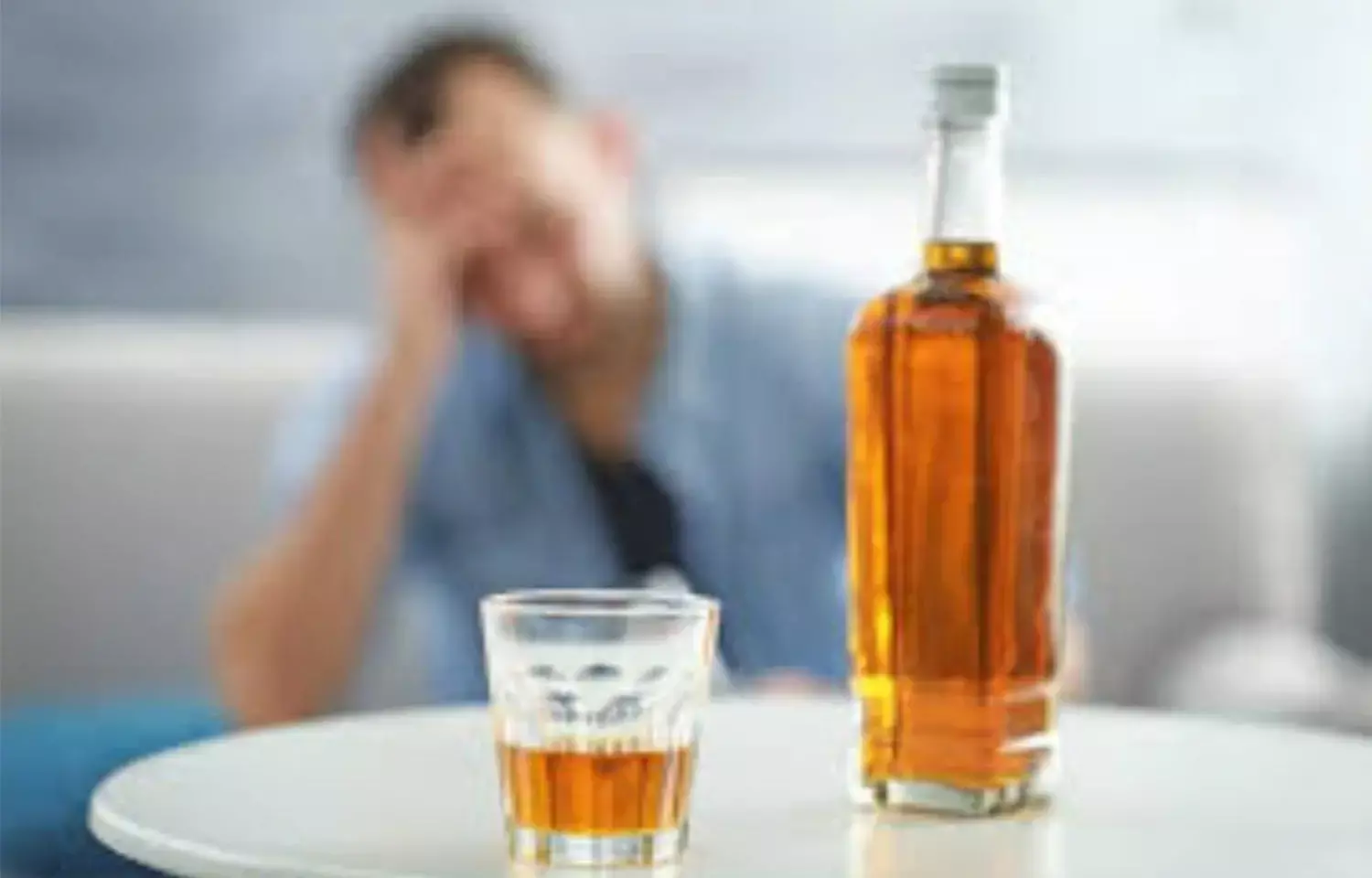- Home
- Medical news & Guidelines
- Anesthesiology
- Cardiology and CTVS
- Critical Care
- Dentistry
- Dermatology
- Diabetes and Endocrinology
- ENT
- Gastroenterology
- Medicine
- Nephrology
- Neurology
- Obstretics-Gynaecology
- Oncology
- Ophthalmology
- Orthopaedics
- Pediatrics-Neonatology
- Psychiatry
- Pulmonology
- Radiology
- Surgery
- Urology
- Laboratory Medicine
- Diet
- Nursing
- Paramedical
- Physiotherapy
- Health news
- Fact Check
- Bone Health Fact Check
- Brain Health Fact Check
- Cancer Related Fact Check
- Child Care Fact Check
- Dental and oral health fact check
- Diabetes and metabolic health fact check
- Diet and Nutrition Fact Check
- Eye and ENT Care Fact Check
- Fitness fact check
- Gut health fact check
- Heart health fact check
- Kidney health fact check
- Medical education fact check
- Men's health fact check
- Respiratory fact check
- Skin and hair care fact check
- Vaccine and Immunization fact check
- Women's health fact check
- AYUSH
- State News
- Andaman and Nicobar Islands
- Andhra Pradesh
- Arunachal Pradesh
- Assam
- Bihar
- Chandigarh
- Chattisgarh
- Dadra and Nagar Haveli
- Daman and Diu
- Delhi
- Goa
- Gujarat
- Haryana
- Himachal Pradesh
- Jammu & Kashmir
- Jharkhand
- Karnataka
- Kerala
- Ladakh
- Lakshadweep
- Madhya Pradesh
- Maharashtra
- Manipur
- Meghalaya
- Mizoram
- Nagaland
- Odisha
- Puducherry
- Punjab
- Rajasthan
- Sikkim
- Tamil Nadu
- Telangana
- Tripura
- Uttar Pradesh
- Uttrakhand
- West Bengal
- Medical Education
- Industry
Magnetic brain stimulation promising treatment for Veterans with alcohol use disorder and depression

USA: Temporal trends show an overall rise in emergency department (ED) utilization rates for alcohol-associated hepatitis (AH), more patients requiring hospital admission, and an increase in the proportion of younger patients presenting to the ED with AH, an analysis of national trends has shown.
For the study in Alcohol: Clinical & Experimental Research, investigators at the VA Palo Alto and Stanford University evaluated the feasibility and effectiveness of 20 transcranial magnetic stimulation (TMS) sessions in influencing depression symptoms, alcohol craving, and relapse among veterans with AUD.
Veterans with alcohol use disorder (AUD) appear to benefit from a non-invasive technique that uses magnetism to stimulate neurons in areas of the brain linked to psychiatric disorders. A small pilot study explored the effects of TMS on alcohol relapse and depressive symptoms. Two in five veterans have AUD. Existing treatments are often insufficient to prevent relapse and do not address the psychiatric co-morbidities-e.g., depression-that are common in this population.
Previous research suggests that repetitive TMS (rTMS) targeting the dorsolateral prefrontal cortex (DLPFC), part of the brain implicated in AUD and depression, may help reduce craving, alcohol consumption, and relapse rates. Studies have yielded mixed results, however. One reason for this may be that many previous studies have delivered relatively few sessions of TMS to AUD patients (10 or fewer).
The therapeutic effects of TMS for many other psychiatric disorders like depression, however, have been observed following 15-20 treatment sessions.
Researchers worked with 13 veterans in a residential treatment for AUD. Participants were randomized to receive 20 sessions of real or sham iTBS, delivered three times a day over 2-3 weeks. The rTMS technique-intermittent theta burst stimulation (iTBS)-can be delivered in three minutes per session. Participants underwent behavioral assessments covering alcohol use, depressive symptoms, and functional magnetic resonance imaging (fMRI) scans exploring reactions to alcohol cues linked to craving prior to receiving TMS. After completing treatment, they underwent another behavioral assessment and scan and were monitored for six months.
The participants rated their experience positively. Those who received iTBS were substantially less likely to relapse in the three months following treatment compared to those receiving the sham intervention. This effect waned by six months, however. Relapse severity was not significantly different between groups. Those receiving iTBS also experienced greater reductions in anhedonia, i.e., the inability to feel pleasure, than those in the sham treatment group. The post-treatment scans of those who underwent real iTBS showed moderate decreases in responses to alcohol cues, most pronounced on the same side of the brain as the stimulation, suggesting that real iTBS may decrease or prevent increases in alcohol cue-reactivity, linked to craving; the sham treatment was associated with increased cue reactivity.
This pilot study is the first randomized, double-blind, sham-controlled trial to deliver iTBS to the left DLPFC. These preliminary findings suggest that a series of quick treatment sessions may help extend abstinence, reduce alcohol relapse rates, and ease anhedonia symptoms and alcohol cravings, two strong predictors of relapse among veterans. It may be especially appropriate for people with AUD and depression. Twenty sessions of iTBS proved feasible and tolerable within a residential treatment setting; the treatment could likely be administered in outpatient settings. Additional research is needed to test the intervention on a larger scale and explore possible sex differences.
Reference:
Shreya Sengupta, Akhil Anand, Rocio Lopez, Jeremy Weleff, Philip R. Wang, Annette Bellar, Amy Attaway, Nicole Welch, Srinivasan Dasarathy,Emergency services utilization by patients with alcohol-associated hepatitis: An analysis of national trends, Alcohol: Clinical and Experimental Research, https://doi.org/10.1111/acer.15223.
Dr Kamal Kant Kohli-MBBS, DTCD- a chest specialist with more than 30 years of practice and a flair for writing clinical articles, Dr Kamal Kant Kohli joined Medical Dialogues as a Chief Editor of Medical News. Besides writing articles, as an editor, he proofreads and verifies all the medical content published on Medical Dialogues including those coming from journals, studies,medical conferences,guidelines etc. Email: drkohli@medicaldialogues.in. Contact no. 011-43720751


